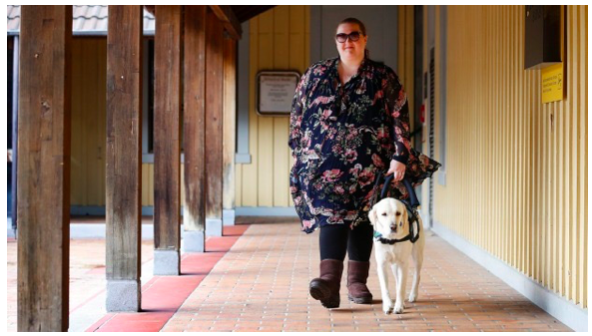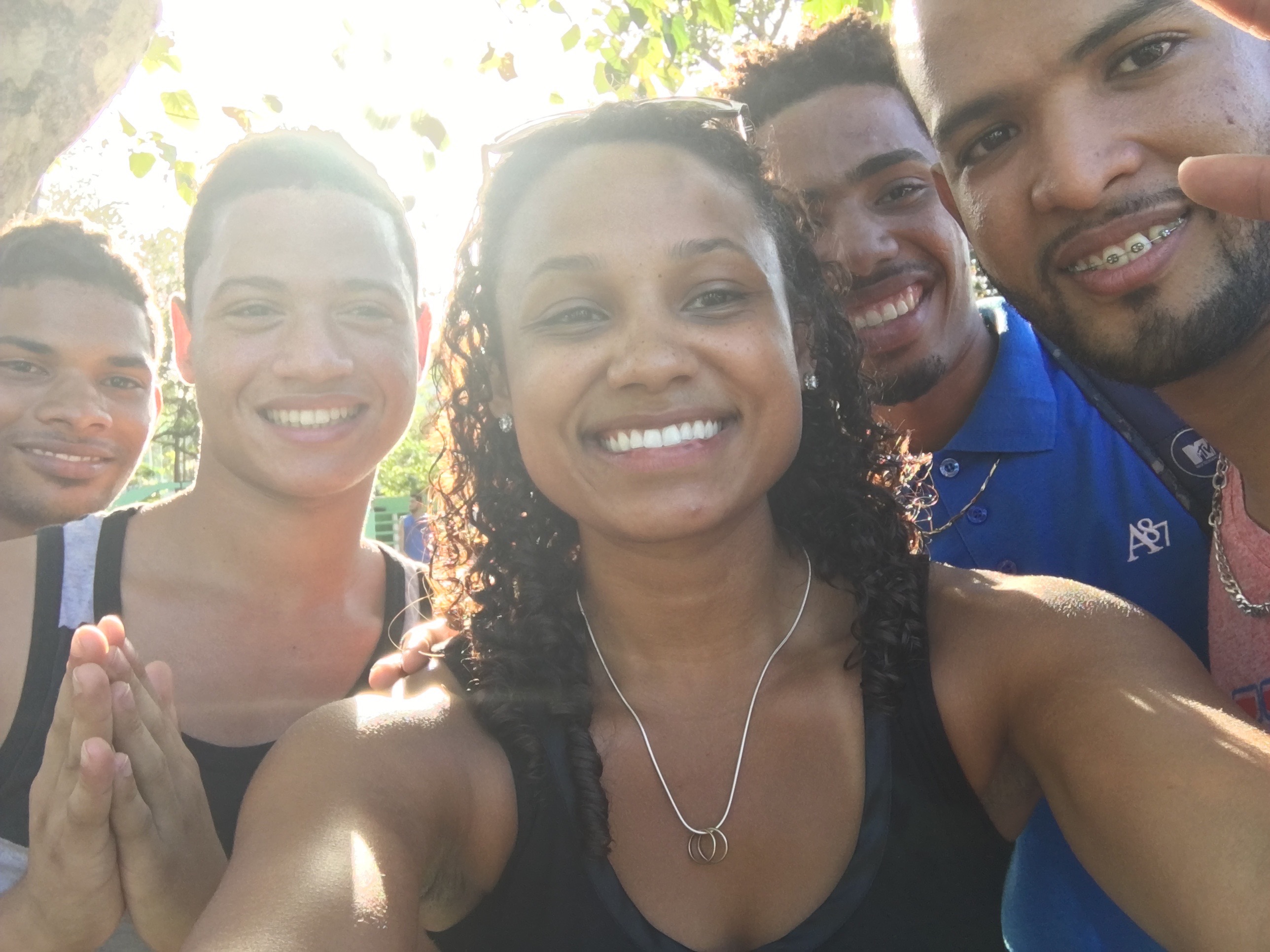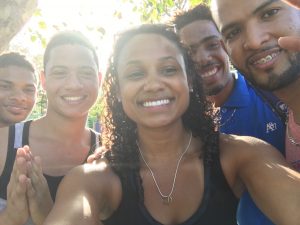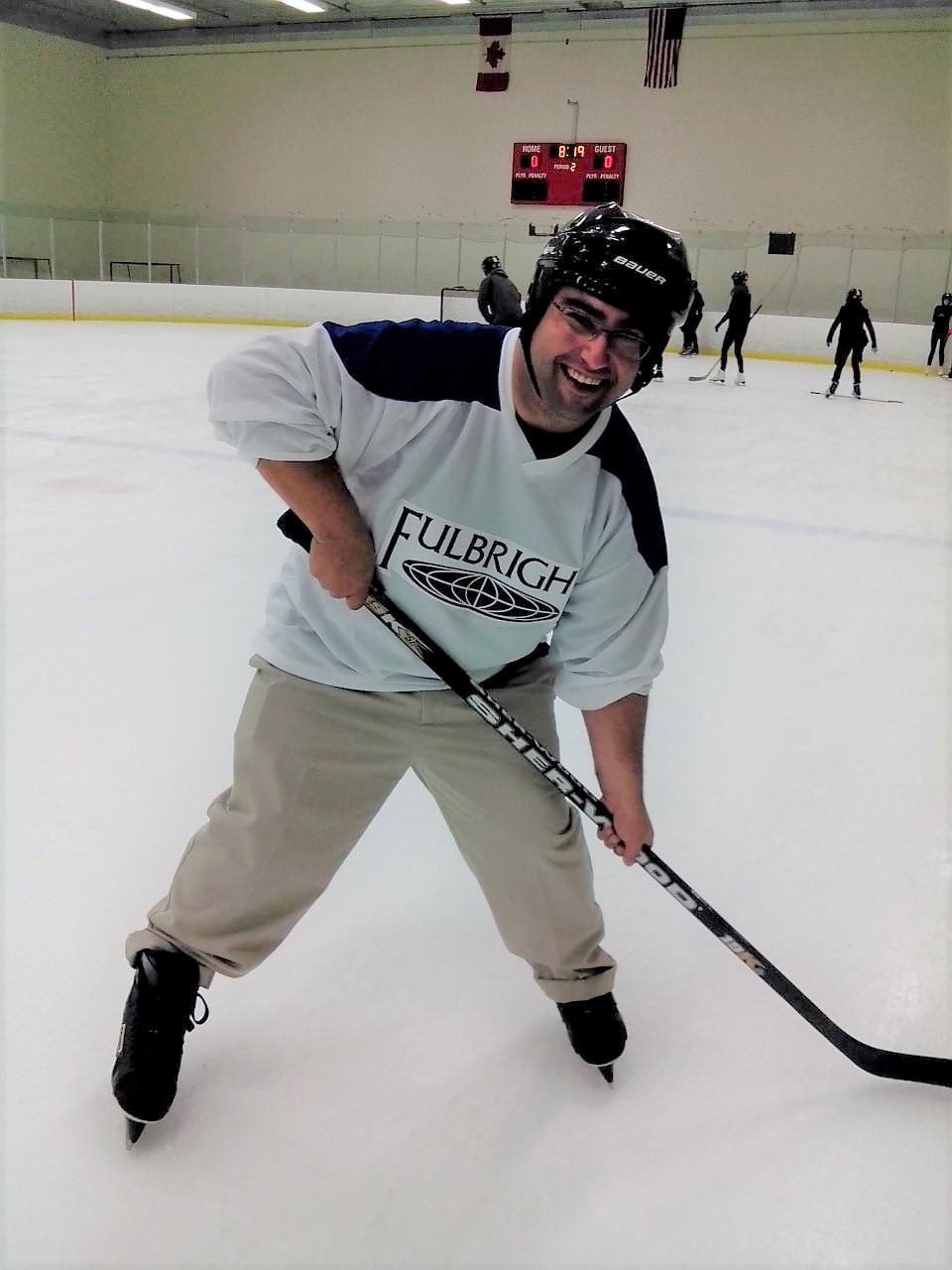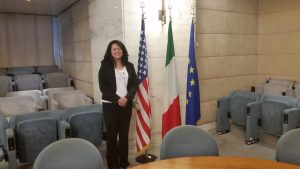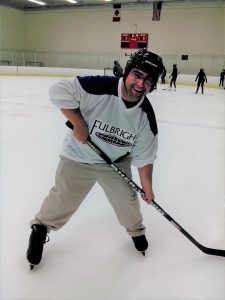
Michael Verlezza, 2014-2015, Canada, participating in an annual tradition – The Fulbright Canada Orientation Hockey Game at Carleton University, Ottawa, Ontario, Canada. (Photo Credit: Rebecca Lawton)
Not long after 9/11, I enlisted in the United States Army. Eight years and two deployments later, my outlook on life grim, I opted to separate from the military. Rudderless, I enrolled at Bridgewater State University with the aim of completing an economics degree, and after some success, I was invited to an informational meeting with a member of Fulbright’s outreach team. Lured largely by the prospect of free pizza, I attended a meeting that would reset my life’s course.
As a freshman, I had taken a Canadian history course, and coupled with my complete lack of language skills, Canada seemed the strategic choice. Initially, I pitched a proposal that had me studying international exchange rates. I was assured that this was boring (even by economists’ standards) and told to go back to the drawing board. Not long after, the VA’s report outlining the frequency of veteran suicide was published. As a disabled veteran myself, I began to wonder what American tax dollars were getting us if they weren’t ensuring the safety and care of my fellow vets.
My Canadian history professor set me up with the Principal of the Royal Military College, and I put together a proposal whereby I would study federal spending on Canadian and American veterans. In addition, I proposed I augment my analytical skills (and thus my research) by taking a Master’s of Mathematics and Statistics from Queen’s University in Ontario.
Continue Reading

